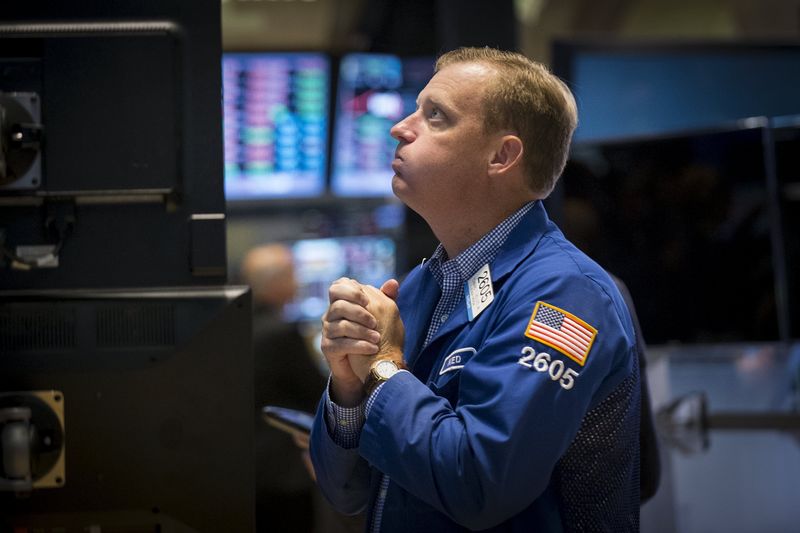By Yasin Ebrahim
Investing.com – The Dow cut losses into the close Friday, but posted its worst week since March as technology slipped on weaker quarterly earnings, while rising Covid-19 infections prompted investors to abandon their bullish bets on stocks.
The Dow Jones Industrial Average fell 0.59%, or 157 points, and is down 11% from its September highs. The S&P 500 fell 1.15%, while the Nasdaq Composite slumped 2.45%.
Tech, which has been leading the broader market rebound since mid-March, is in the selling spotlight as investors mulled a string of quarterly results from FAANG stocks, excluding Netflix (NASDAQ:NFLX).
Apple (NASDAQ:AAPL) fell 6% after its weaker-than-expected iPhone sales overshadowed third-quarter results that beat on both the top and bottom lines. Amazon.com (NASDAQ:AMZN)'s third-quarter results also beat Wall Street estimates, but its underwhelming guidance sent its shares 5% lower.
Facebook (NASDAQ:FB) slumped 6%% after a fall in user additions, but Wall Street continued to back the stock as the social media giant is expected to benefit from the ongoing "shift of ad spending to digital outlets," Wedbush said in a note.
Google-parent Alphabet (NASDAQ:GOOGL), however, sidestepped the selling, closing 4% higher as investors cheered signs of a rebound in ad-spending as the search engine giant reported third-quarter results that topped analysts' estimates.
Twitter Inc (NYSE:TWTR) plunged 21% after bucking the trend of sharp user growth seen from other social platforms including Snapchat during the quarter, adding just 1 million users since the end of the second quarter.
Energy cut its losses to end positive as oil major Exxon Mobil (NYSE:XOM) pared some intraday weakness following disappointing quarterly results.
The biggest one-day slump on Wall Street since the pandemic began in mid-March comes ahead of the U.S. election on Nov. 3 and as the spread of the virus continues to gather pace.
"[I]t is very unlikely that the economy will so easily continue along on an uninterrupted positive trajectory, particularly if a resurgence of the virus undermines the progress made July to September," Stifel Economics said in a note.
The likely resurgence of the virus in the winter could potentially lead to "further restrictions or regulations will only serve to complicate the outlook for the global recovery, domestic GDP, policy and, of course, next week’s election."
On the stimulus front, House Speaker Nancy Pelosi said she remains at odds with the White House on addressing differences concerning the stimulus package.
Pelosi said she expects Congress “certainly will have something [done] at the start of the new presidency,” though did "not want to have to wait that long, because people have needs,” according to MSNBC.
